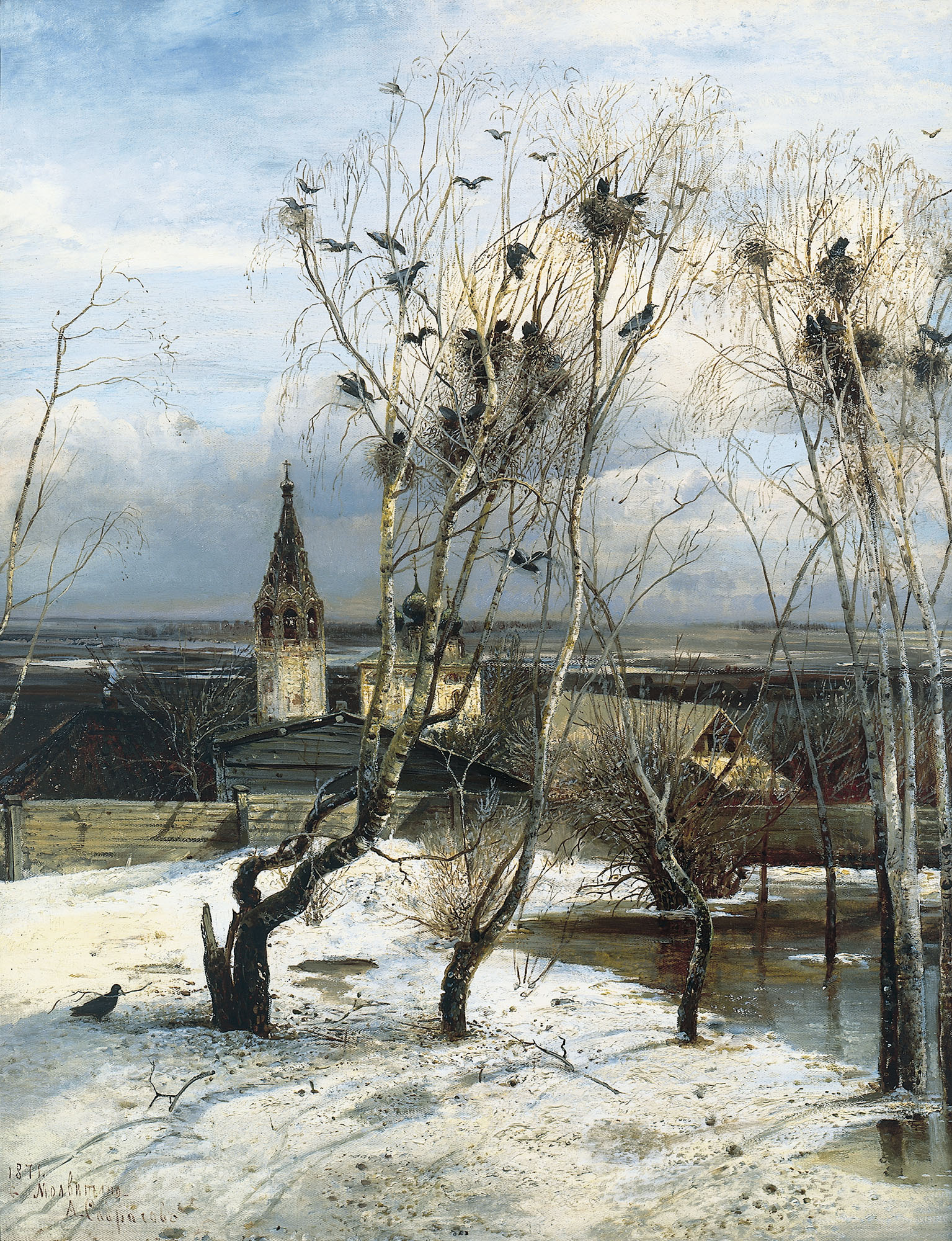"A
life under Russian serfdom" is a poorly written, yet extremely interesting
autobiography written by S. D. Purlevskii, an otherwise unknown Russian
villager. He was born in 1800, and passed away in 1868. In 1877, the Russian
magazine "Russki vestnik" published a polished and heavily edited
version of his memoirs. What makes them interesting is that Purlevskii was an
(almost) completely ordinary person, one of millions of Russians who had
experienced serfdom. (Serfdom was abolished in Russia in 1861.) The work has
been translated to English by Boris Gorshkov, a teacher at Kennesaw State
University.
I wrote above that the author, Purlevskii, was an almost ordinary person. He was born in the village of Velikoe outside Yaroslavl, situated in the same region of Russia as Moscow. Both the region and Purlevskii's village were somewhat unusual. The economy wasn't purely agricultural, but rather based on textile manufacturing, trade and even heavy industry. This forced the landlords (some of whom were "capitalists" rather than feudal barons) to grant the serfs a certain amount of independence. Purlevskii and his family were involved in various forms of trade, and many of the villagers were allowed to leave the village and visit Moscow, St Petersburg and even the far-away port of Archangel. Some of the villagers even had small shops in Moscow. Purlevskii's father managed to become relatively wealthy, and even employed servants in his household. Purlevskii's own fortunes were more mixed.
Still, serfs were serfs, and the conditions in Velikoe and the surrounding area were a curious mixture of "normal" village life and abject slavery. The villagers had to pay large taxes to whoever owned the village at the moment, and these taxes could be raised at the whim of the landlords. The landlords also forced many villagers to become their servants at their houses in Moscow and St Petersburg. It's also obvious that young women were sexually exploited by some landlords. People who protested could be flogged, forced to work in Siberian factories, or sent to the army. Being sent to the army could also happen to people who didn't have enough money to pay their taxes. Conditions in Velikoe were better than average, and when Purlevskii became village elder, he even managed to convince the local authorities to open a public school and a small medical ward. Still, his resentment grew by the day, fuelled by "secular literature" he had managed to obtain from Moscow. (Purlevskii could read and write.)
Eventually, Purlevskii suspected the authorities of trying to frame him for theft after a failed business operation he had undertaken on behalf of his owner, and rather than risking harsh punishment, Purlevskii fled Russia. He sought refuge in Romania, a nation to which several persecuted religious sects from Russia had already fled. In 1834, Purlevskii could return to Russia thanks to an amnesty, and was granted his freedom, but under the terms of the amnesty, he was forced to settle in the Odessa region, a long way from his native village. He even became a member of the merchant estate, and a business manager for a local company. In 1852, he could move to Moscow, and in 1856 he bought freedom for his son by paying 2,500 silver rubels to the landlord.
I bought this book hoping that it would contain detailed descriptions of the famous Russian mir, the village commune. Actually, the mir isn't mentioned very often. I had expected Russian village life to be very collectivist, but at least in Velikoe, this was only partially true. The village commune did have important functions, to be sure. The commune bailed out villagers who were too poor to pay the taxes, and it made sure that the tax burden was distributed equitably. Otherwise, life in Velikoe was individualist and even competitive, since the villagers were allowed to set up their own businesses and have their own private fortunes. As already noted, the author's father even employed servants in his household.
Of course, there are obvious problems with a source like this. "Russki Vestnik" admitted of having edited the memoirs before publishing them. Also, the manuscript breaks off before the dramatic flight to Romania, forcing the magazine editor to fill in the details based on hearsay. Still, I found the book very interesting and authentically-sounding.
Recommended.

No comments:
Post a Comment